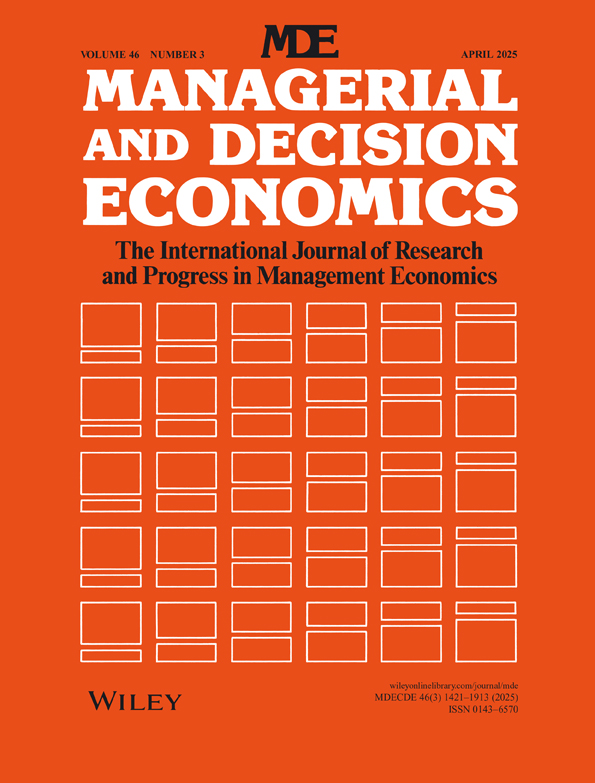Pricing and Procurement Strategies for Substitute Products in Extreme Weather
Funding: This work was supported by the Social Science Planning Program of Chongqing (2024BS069) and Guangxi Key Science and Technology Program (AA23062032) and Open Fund of Chongqing Intelligent Supply Chain Engineering & Technology Research Center (OFCISCETRC24203).
We sincerely and deeply appreciate the kind and helpful comments of the editor and all the anonymous reviewers on this manuscript.
ABSTRACT
Climate change is causing frequent extreme weather events, posing disruption risks to supply chains. A two-echelon supply chain comprising two suppliers and one retailer is constructed from a risk perspective. A game theory model is utilized to analyze all parties' optimal decisions and risk management measures under climate disturbances. The reactions of the retailer and suppliers, who sell vertically differentiated substitute products, are examined, and the changes in social welfare are observed. Our analysis exhibits that (1) the retailer mitigated the negative impact of risk disturbance through product differentiation and pricing strategies and even achieved higher profits than without extreme weather events; (2) there is a possibility that the sales volume will be higher in extreme weather, which is related to the antidisturbance ability of the supply chain; and (3) although extreme weather disturbs the supply, it may lead to a win–win relationship between retailer's profit and social welfare. The operational decisions derived from this study exhibit robustness in mitigating the adverse effects of extreme weather, enabling maximization of both retailers' profits and social welfare, thus contributing to the theoretical foundation for sustainable socioeconomic systems.
Conflicts of Interest
The authors declare no conflicts of interest.
Open Research
Data Availability Statement
The data that support the findings of this study are available from the corresponding author upon reasonable request.




